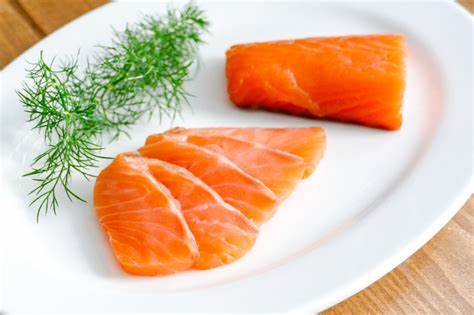- Excellent Source of Omega-3 Fatty Acids: Salmon is renowned for its high content of omega-3 fatty acids, particularly EPA and DHA, which are crucial for heart health, reducing inflammation, and supporting brain function.
- Rich in High-Quality Protein: Salmon provides a substantial amount of high-quality protein, essential for muscle repair, growth, and overall body maintenance. Protein is also vital for maintaining a healthy immune system and producing enzymes and hormones.
- Loaded with Vitamins and Minerals: Salmon is packed with essential vitamins and minerals, including B vitamins (B12, B6, B3, B5, B2), vitamin D, selenium, and potassium. These nutrients support energy production, bone health, thyroid function, and electrolyte balance.
- Supports Heart Health: The omega-3 fatty acids in salmon help lower blood pressure, reduce triglycerides, decrease the risk of heart disease, and improve overall cardiovascular health. They also help prevent blood clots and reduce inflammation in blood vessels.
- Promotes Brain Health: DHA, an omega-3 fatty acid found in salmon, is crucial for brain health. Regular consumption of salmon can improve cognitive function, reduce the risk of neurodegenerative diseases like Alzheimer’s, and support mental health by potentially reducing symptoms of depression and anxiety.
- Anti-Inflammatory Properties: The combination of omega-3 fatty acids and antioxidants in salmon provides strong anti-inflammatory benefits, helping to reduce chronic inflammation and the risk of diseases such as arthritis and other inflammatory conditions.
- Supports Bone Health: Salmon is an excellent source of vitamin D, which is essential for calcium absorption and bone health. Adequate vitamin D levels help prevent bone-related disorders like osteoporosis.
- Enhances Eye Health: The omega-3 fatty acids and antioxidants in salmon, such as astaxanthin, support eye health by reducing the risk of age-related macular degeneration and dry eye syndrome.
- Weight Management: Salmon is nutrient-dense but relatively low in calories, making it an excellent choice for weight management. The high protein content promotes satiety, helping to control appetite and reduce overall calorie intake.
- Versatile Culinary Ingredient: Salmon can be prepared in various ways, including grilling, baking, smoking, or poaching. Its rich flavor and tender texture make it a versatile ingredient that can be incorporated into a wide range of dishes, from salads and sushi to main courses.
In summary, salmon is a nutrient-rich fish offering numerous health benefits, from supporting heart and brain health to providing anti-inflammatory properties and essential nutrients. Incorporating salmon into your diet can contribute significantly to overall health and well-being.


